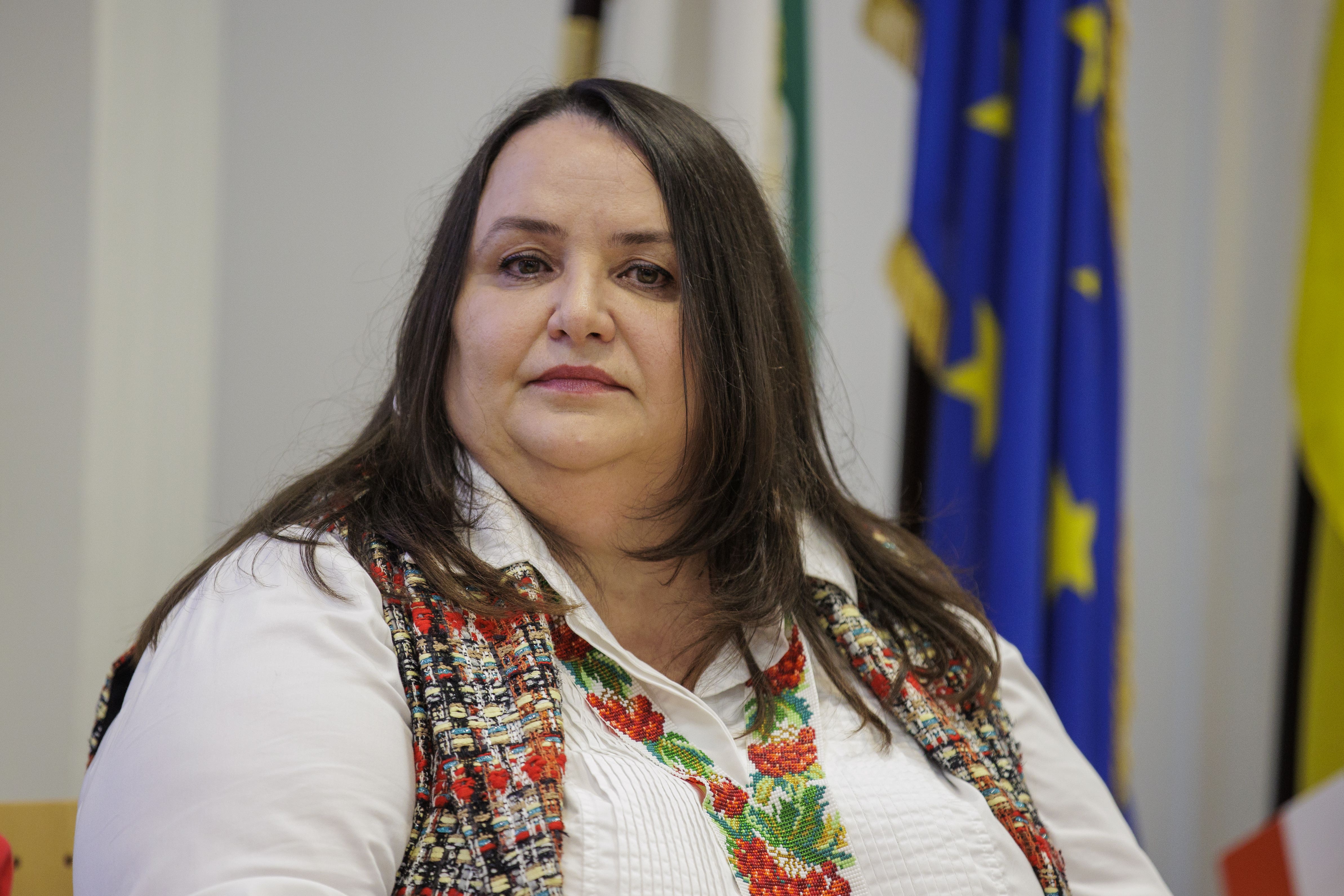Ambassador ‘understands’ decision to cut support for Ukrainians
Larysa Gerasko said she would tell Ukrainians that the support Ireland is offering will change from January.

Your support helps us to tell the story
From reproductive rights to climate change to Big Tech, The Independent is on the ground when the story is developing. Whether it's investigating the financials of Elon Musk's pro-Trump PAC or producing our latest documentary, 'The A Word', which shines a light on the American women fighting for reproductive rights, we know how important it is to parse out the facts from the messaging.
At such a critical moment in US history, we need reporters on the ground. Your donation allows us to keep sending journalists to speak to both sides of the story.
The Independent is trusted by Americans across the entire political spectrum. And unlike many other quality news outlets, we choose not to lock Americans out of our reporting and analysis with paywalls. We believe quality journalism should be available to everyone, paid for by those who can afford it.
Your support makes all the difference.Ukraine’s ambassador to Ireland has said she understands the Government’s decision to cut support for people fleeing Russia’s invasion.
The Government has provided state accommodation to Ukrainians arriving in Ireland for an unlimited amount of time, and a weekly social welfare rate of 220 euro a week, since the war broke out in February 2022.
Last week ministers agreed that from the end of January state accommodation will only be provided for up to 90 days.
During that period, arrivals will be paid a 38.80 euro subsistence allowance and an additional 29.80 per child per week; once they leave state accommodation they are entitled to apply for social welfare.
No changes are being made for the 100,000 Ukrainian nationals who are already living in Ireland.
I understand this decision. I have, of course, my concerns as well, because in 90 days it would be very difficult to find accommodation for newcomers
Ukrainian ambassador to Ireland Larysa Gerasko said that while she understood the decision, she has concerns about what will happen to Ukrainian nationals after the 90 days.
“I’m fully aware about the housing crisis and the shortage of accommodation for Ukrainians, and not only Ukrainians,” she told RTE Radio.
“I understand this decision. I have, of course, my concerns as well, because in 90 days it would be very difficult to find accommodation for newcomers.”
Asked whether the decision would deter people from coming to Ireland, she said: “I think so, yes.”
She said she had requested the “official” version of the decision from the Department of Foreign Affairs.
“We have to analyse this decision and send appropriate messages to Ukrainians in Ukraine, and recommendations of course.”
She said her embassy would use a variety of ways and do “everything possible” to deliver the information to Ukrainians not just about the 90-day limit, but also about the difficulty in finding accommodation in Ireland.
Announcing the decision last week, Integration Minister Roderic O’Gorman said he expected fewer Ukrainian nationals to arrive in Ireland as a result, but that it would not cause a rise in homelessness.
The Government has said the measures are being taken because of housing supply pressure, and Ireland continues to expect about 500 arrivals per week.
More than 101,200 people have arrived from Ukraine since the Russian invasion began in February 2022, with 74,500 Ukrainians living in state accommodation and 57,000 in fully serviced accommodation.
More than 16,000 are currently in employment, according to government figures.
Mr O’Gorman said that reception centres would be set up to house people for 90 days, where meals and laundry services would be provided as well as integration support and access to education for children.
He said that the changes would bring the Irish offering “into line” with other western European countries, some of which, he said, had not welcomed as many Ukrainians as Ireland on a proportionate basis.
Government figures indicate that Ireland now hosts 2.3% of all beneficiaries of temporary protection in the EU.